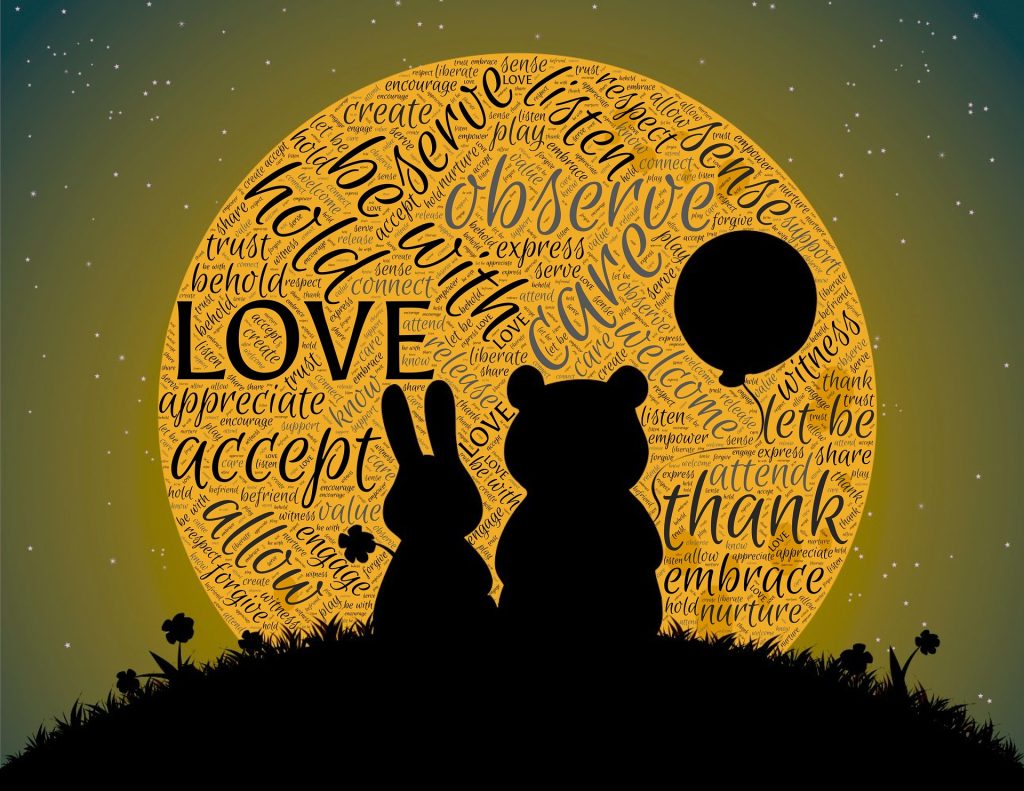
Can LGBTQ+ Intimate Partners fall back in Love?
My answer surprises many who ask. Once upon a time… a couple in counselling shared with me that what they wanted was to be able to have their relationship back, just how it used to be; to fall back in love again.We never achieved that…Instead, we developed something much better than they had before.“We want what we used to have…”
Regularly… a couple will tell me, as their counsellor, that what they want from our counselling work is for their relationship to be restored to a time when they were in love and their relationship was happy.
They want their poor history to vanish, and for everything to be as it once was.
The bad news is that we cannot achieve this through counselling.
The good news is that with work, we may achieve something better.
Why such bad news? Explanation: we cannot go back in time and erase a couple’s history. A relationship grows and incorporates everything that happens within it: the good, the bad, the celebrations, the losses, the dull and exciting. Damage to a partnership cannot be erased, nor abusive behaviour, nor neglect, nor anything that changed how the relationship used to be.
The way the couple communicate together through adversity decides how the relationshipd could transform in the future.
This is an important key.
Not all couples can work in counselling. through a difficult relationship history. This weakness can be what corrupts the possibilities for reconciliation. Without reconciliation and embracing the errors of the past, the couple cannot find a mutual ground upon which they might fall back in love. Instead, a couple is left to yearn for what they used to have.
Counselling helps to Work-through Conflicts
The couple and I will work together to address the matters that are getting in the way.
Sometimes addressing conflicts may last a significant number of sessions; it depends on how well the couple can work with each other to transform their behaviour. We’ll deal with the fallout from all the unresolved history, all the problems and difficult life events that the couple had to endure together.
And then, maybe slowly, though not guaranteed, when the environment is right, a couple may find a newer form of love as effective as that which bound them at the start of their relationship.
The couple’s newer way of relating may not be quite how it used to be. Instead, the partners are falling in love with who they are today, not with who they used to be yesterday. Through counselling, they may grow to be able to manage their history together, finding ways to forgive or tolerate historic problems and events that have happened to them. They may arrive at a place where love is possible again. And when it’s not possible, we can talk about the possibilities of relationship separation.
Falling Back in Love?
How might a gay couple rekindle their love for one another?
It may come as a surprise to you that LGBT and QIA+ romantic relationships frequently do not engage in beneficial therapy… until the very last minute (and sometimes after it is too late).
Taking up counselling when the relationship has been failing for a long time may seem like a desperate step; indeed, the couple may very well be desperate, expecting the counsellor to fix what they could not. This way of thinking, unfortunately, can leave counselling too late to help.
People in intimate relationships sometimes don’t talk for very good reasons!
The sad, but very real news, though, is that counselling cannot rescue a relationship on behalf of the couple themselves. This is because couple counselling is a process (a tool, if you like) that the couple can invest in, develop, and learn to use themselves to address cracks in the relationship. Counselling does not fix things on behalf of the couple.
Counselling is not a prescribed fix (aka Step1… Step 2… etc) that guarantees everything will be cured at the end of step 20. No – there is hard work to do – and those who are willing to invest the time can discover welcoming a transformation of their relationship in conflict.
But what does this have to do with falling back in love?
Taking Things One Step at a Time
An overview of how LGBT relationship counselling works, starts with encouraging curiosity…
- Curiosity (initiated through Counselling)… leading to → New Information.
- New Information… leading towards → New Options.
- New Options… leading towards → Negotiating / Making New Choices.
- New Choices… leading towards → Transforming the Relationship (through informed empowerment).
- Transformation Underway… the partners are developing affective behaviours that address relationship conflicts (and may choose to leave counselling).
Curiosity allows us to discover new knowledge. New information provides us (and our partners) with new possibilities, which leads to us making some new (or newer) relationship decisions. When new decisions are made, the behaviour of the partnership can begin to change. When the partners' relationship is much more under their own management (again), they will recognise it's time to leave counselling.
Communication & Comprehension
We use couple counselling to boost communication, improve comprehension of each other, and develop options that address this relationship’s unique needs. It’s this approach that can lay the groundwork for the couple to fall back in love once more.
We talk. We will develop hypotheses on what’s going wrong in the relationship. We will implement safeguards and measures to learn from and manage errors. We revisit, review, and amend our approach. The couple begins to deal with conflicts that couldn’t have been dealt with before. We improve communication by getting used to discussing things that we thought couldn’t be discussed before. We learn how we can make informed, relationship-transforming decisions once again. We do this by observing, adjusting, and learning how your partnership can blend its strengths (Partner A does this more effectively, but Partner B does another thing more effectively, and combining the strengths can be a tour de force, rather than a conflict).

Improving Intimate Communication
A common complaint brought into counselling by many gay and lesbian partners is: “we don’t know how to communicate any more.” 😢.
I’ll say to you: couples don’t talk for very good reasons.
It’s not entirely accurate for us to say that a couple doesn’t “know” how to communicate due to them arguing a lot. Some would think that arguing implies a lack of communication skills, right?
I’d say that the couple is communicating well… it’s just that through arguing neither one is really listening to what the other wants to be heard.
When a honeymoon period is over (or the honeymoon didn’t have a chance to begin) and more serious matters come into the couple’s lives, partners discover that the way they learned to communicate in the beginning has left them unprepared to deal with the more serious aspects of relationship communication later on.
We can improve communication in your relationship.
Tales of Therapy
Over the past 26 years as a counsellor I’ve heard hundreds of stories about misunderstandings and inability to communicate successfully.
Such stories have included:-
“We met online and didn’t live together for some months. We might have skipped the honeymoon (aka “foundation building”) stage.”
“We don’t talk any more – we just throw looks at each other and don’t try going any further.”
“I thought in relationships we get to know everything the other thinking or feeling. So why do I keep getting it wrong?”
“I think it’s because he {reasons of suspicion or hatred} so I don’t try to speak any more”
Working together, and employing therapeutic frameworks that have been around for over 50 years, the couple develops improvements in their very own style and brand of communication. We’ll learn about checks-and-balances, how to notice problems and take immediate action, interrupting an argument before it begins, and so much more.
Plus, as an experienced counsellor, Dean employs methods using plain English (so you won’t need a psychology degree to benefit).
Couples create their own Therapy Process
In summary: through couple counselling, couples begin learning new information about each other and their relationship, though they may have been turning a blind eye to such information for years.
By learning new information about each other and the relationship’s behaviour, we get the opportunity to make different choices. More informed choices.
With new choices come opportunities for the couple to improve their relationship behaviour, which may lead them to fall back in love anew. 💘




